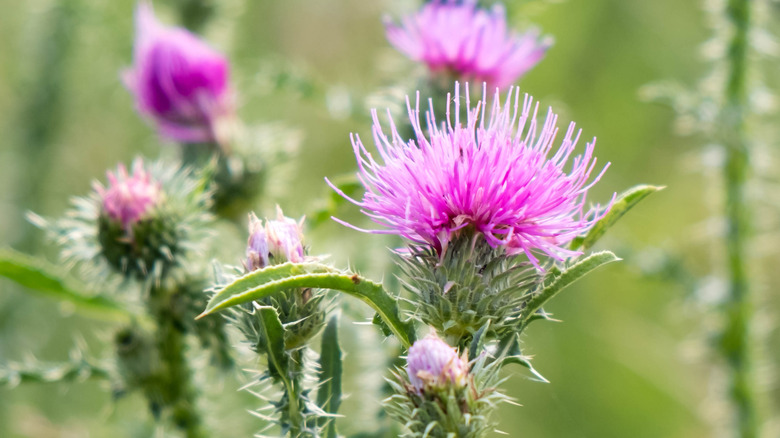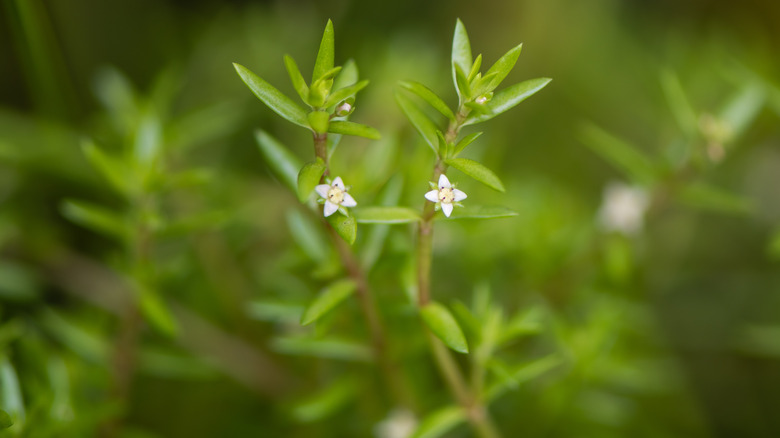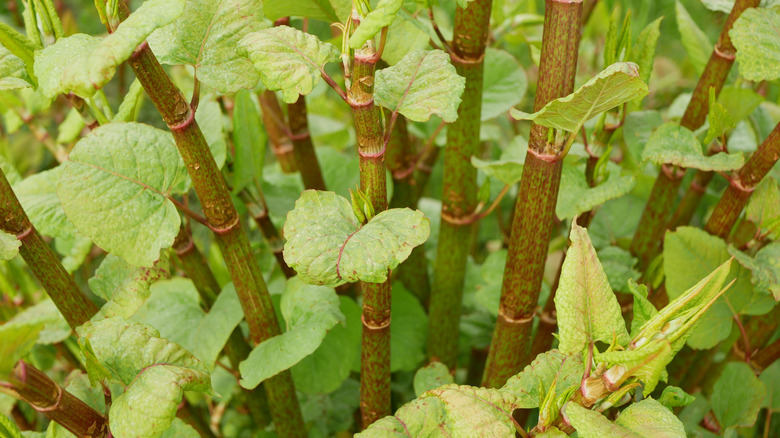Here's What The UK's 'Criminal Plant' Ban Really Means
Few things are more annoying to a gardener than wondering where that odd weed came from that's now proliferating in their veggie patch. In the U.K., some invasive species fall under laws that are meant to control such spread. The Weeds Act of 1959 outlines types of plants that may be native to the U.K. yet pose a high risk for spreading. To be more specific, growing certain plants doesn't violate the law, but property owners have to keep the species under control and keep them from permeating other areas. Even if the plant variety has the trait of being quite prolific, the gardener still has the responsibility of keeping its growth down to a minimum and well within their property's boundaries. If it starts to spread, especially to a neighbor's garden, then the guilty party faces a fine.
In addition to the Weeds Act, England and Wales have regulations pertaining to non-native species that can invade their surrounding habitat and cause problems to the pre-existing vegetation. This particular act, called the Wildlife and Countryside Act of 1981 (WCA), requires homeowners to keep some plants from spreading while also forbidding the ownership or distribution of other types. For anyone living in the U.K., it's important to understand these rules and which plants are regulated. With these factors in mind, we'll further unpack these laws, some of the plants that are prohibited or need to be controlled, and the penalties should they get out of hand.
Why are some plants regulated?
The plants that fall under the Weeds Act or the WCA (or both), carry a threat not only to the co-existing vegetation in their immediate habitat but in some cases, also to animals and humans. One such example is the giant hogweed whose sap can severely irritate skin immediately on contact. The common ragwort is another plant that is hazardous to animals who ingest it. So, if livestock are grazing close to your property, you must take care to prevent the growth of this weed.
Plants that are also controlled under these laws include the New Zealand pigmyweed (shown above) which has the ability to overtake all plant life in its environment. Consequently, selling a cutting or its seeds is strictly prohibited. Another highly invasive plant is the Himalayan balsam, each of which contains approximately 800 seeds making it easy to spread and hard to control. Also, the Rhododendron ponticum proves to be problematic for other plants nearby because it prevents them from getting enough sunlight. Trying to get rid of it is quite the challenge, so it falls under these regulations. One more invasive plant you should never grow because it's hard to kill is the Japanese knotweed. Unfortunately, homeowners are forced to pay a high fee to get it completely eradicated or face the legal consequences if it gets out of control.
What are the consequences?
Of course, if anyone files a report to the U.K.'s Department for Environment, Food, and Rural Affairs, the garden's owner faces definite consequences. For instance, violations of the Weeds Act result in the homeowner receiving a notice which would allow for time to bring the plant growth under control or to safely remove the species altogether. On the other hand, if the homeowner refuses to follow the mandates on the notice, then they would be fined if convicted. Moreover, if this person is convicted and fined, but the forbidden plants come back, then they'll need to act fast (within 14 days) to eradicate them for good.
Likewise, in the situation of being caught with the problematic Japanese Knotweed in the garden, the court would require the homeowner to pay a fine of up to £2,500 (over $3,000 USD). This penalty came into play in 2014 under new laws that were passed and then enforced in conjunction with the Wildlife and Countryside Act and the Anti-Social Behavior Orders, per Knotweed Help. One of the best ways to avoid these consequences is to keep the plant growth well within its limits. Nevertheless, the only route to take to steer completely clear of getting fined is to refrain from introducing invasive plants into the garden to begin with.


